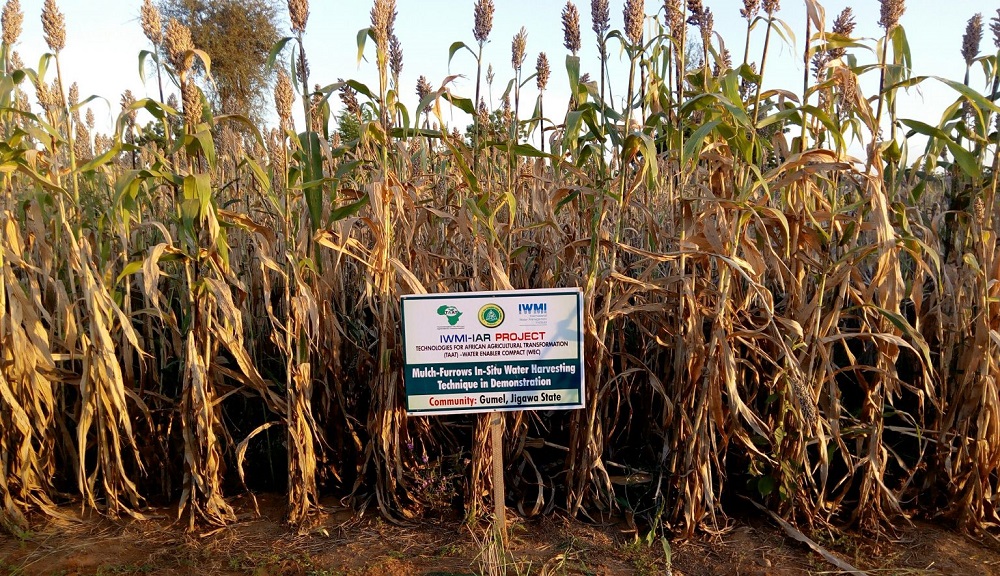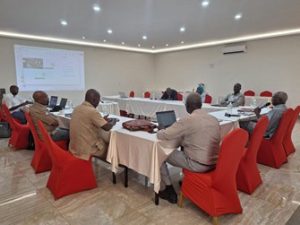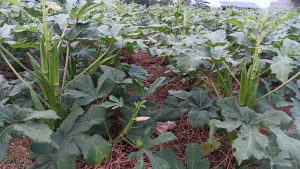TAAT Scales-out Water Management Techniques to 600 Farmers in Jigawa State
The Water Enabler Compact (WEC) of Technologies for African Agricultural Transformation (TAAT) has scaled out some In-situ rain water harvesting techniques to not fewer than 600 farmers in Gumel Local Government Area of Jigawa State, North-West Nigeria.
The scale out was informed by the need to enhance sorghum production in the Sahel Savannah. The techniques include tied ridging and double density planting with mulch furrow.
Sponsored by the African Development Bank (AfDB) as part of its Feed Africa Initiative, TAAT’s main objective is to improve the business of agriculture across Africa by raising agricultural productivity, mitigating risks and promoting diversification and processing in 18 agricultural value chains within eight Priority Intervention Areas (PIA).
The programme increases agricultural productivity through the deployment of proven and high-performance agricultural technologies at scale along selected nine commodity compacts. These work with six enabler compacts addressing transversal issues such as soil fertility management, water management, capacity development, policy support, attracting African youth in agribusiness and fall armyworm response.
Led by the International Water Institute (IWMI), the TAAT Water Enabler Compact (WEC), promotes low-cost and easy-to-deploy irrigation and water management technologies to small-scale farmers across Africa.
Speaking during the mini field day organised by the National Coordinator of TAAT-WEC in Nigeria, Prof. Henry Igbadun said the goal of the programme is to change the fortunes of farmers for the better in both rain fed and irrigation farming in the piloting states in the Northern Nigeria.
According to him, the TAAT programme, with a life span of three years in the first instance, is focusing on scaling out innovations, tools, techniques and technologies for agricultural water management to farmers, training them on the technologies and best approaches to farming practices for high yield.
“No doubt, the training of the farmers on water conservation to grow crops in the Sahel region where the rainfall is relatively shorter and erratic will go a long way in changing the narrative of farming for good”, he said.
Igbadun explained that the training has brought together farmers from across various benefiting communities whose knowledge on the new farming techniques were refreshed by the practical demonstration of the processes of conserving water to prevent crops from wilting as a result of erratic rainfalls.
Also in his remarks, the Managing Director, Jigawa State Agricultural and Rural Development Authority (JARDA), Ahamed Mohammed-Adamu who commended the TAAT-WEC support in the state urged the farmers to embrace the new methods and enhance their agricultural practices for maximum benefits.
One of the beneficiaries and the Chairman All Farmers Association Gumel branch, Almu Dandada described the TAAT-WEC intervention as a turning point in the development of agriculture in Gumel.
He added that farmers stand a better chance to benefit maximally from agriculture through the new techniques of farming brought by TAAT-WEC.
Dignitaries at the field show all commended TAAT’s commitment to transforming African agriculture, adding that if the tempo is maintained, Nigeria will achieve food security in no distant time.
Recent Stories
Related Stories
- TAAT excites Nigerian Youths with new irrigation technologies for dry season farming
- How TAAT Orange-fleshed sweet potatoes sparked a wellness movement
- TAAT holds Agribusiness Training for Nigerian youth
- Reducing COVID-19 Impact on Agriculture: TAAT and Partners Support Nigerian Farmers with improved seeds
- TAAT records success stories with agribusiness park for youths in Nigeria






